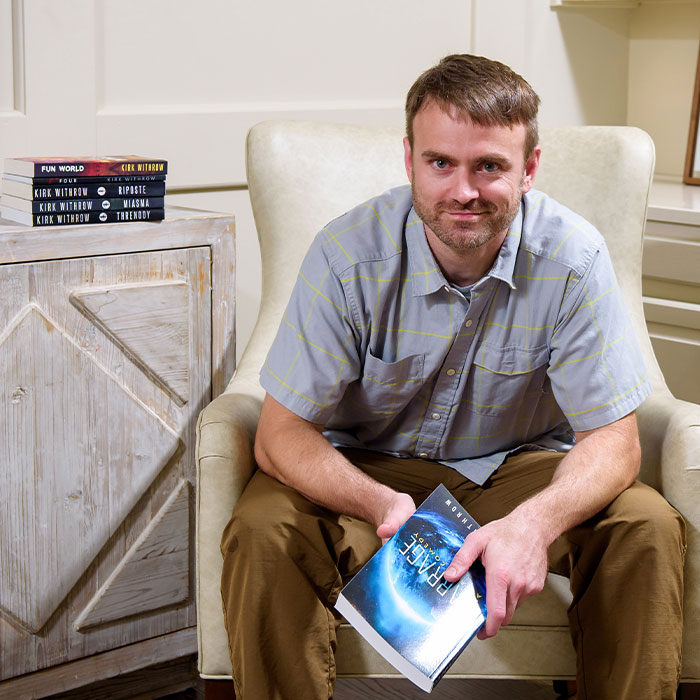Despite his busy schedule as an associate professor in the Department of Otolaryngology, Kirk Withrow, M.D., is the author of numerous books and short stories, many with a dystopian slant. His earliest novel, Four, is a psychological/military/medical thriller about a former soldier suffering from PTSD. The Redivivus Trilogy—Threnody, Riposte, and Miasma—is a postapocalyptic survival horror series about humanity’s battle against a deadly pathogen. His most recent novel, Fun World, is set in a fictional theme park where a family must fight to survive amid a zombie apocalypse. Kirk Withrow’s books are available for purchase on Amazon
Kirk Withrow’s books are available for purchase on Amazon
What sets his writing apart is the influence of his medical training, which gives his works a grounding in science despite the often fantastical subject matter. “The whole idea of an apocalypse is an interesting tool because you can pare your characters down to just a few people. And, if you take all the societal rules away, you can explore the extremes of human behavior—you can see the absolute best and the absolute worst in people.”
A friend’s casual question sparked Withrow’s interest in crafting zombie/survival fiction. “Around the time The Walking Dead was coming out, he asked me if there was any way a zombie could ever actually exist. And I was like, ‘Well, no,’ but it got me thinking of aspects of real medical conditions that you could combine that could add up to something like that.
“For instance, there are hormones that control satiety, there are hormones that allow you to sleep or stay awake, there are rare medical conditions where people can’t feel pain. If you think of the prototypical zombie—they don’t sleep, all they want to do is eat, they have uncontrolled aggression, they don’t feel pain—and if you look at it without too much scrutiny, you could see elements of those real medical conditions coming together in something like that. So that’s probably the best way to describe what I try to do with my writing: take bits and pieces of actual science and put them together in a way that, while it’s fiction, there’s a scientific basis behind it.” – Jane Longshore